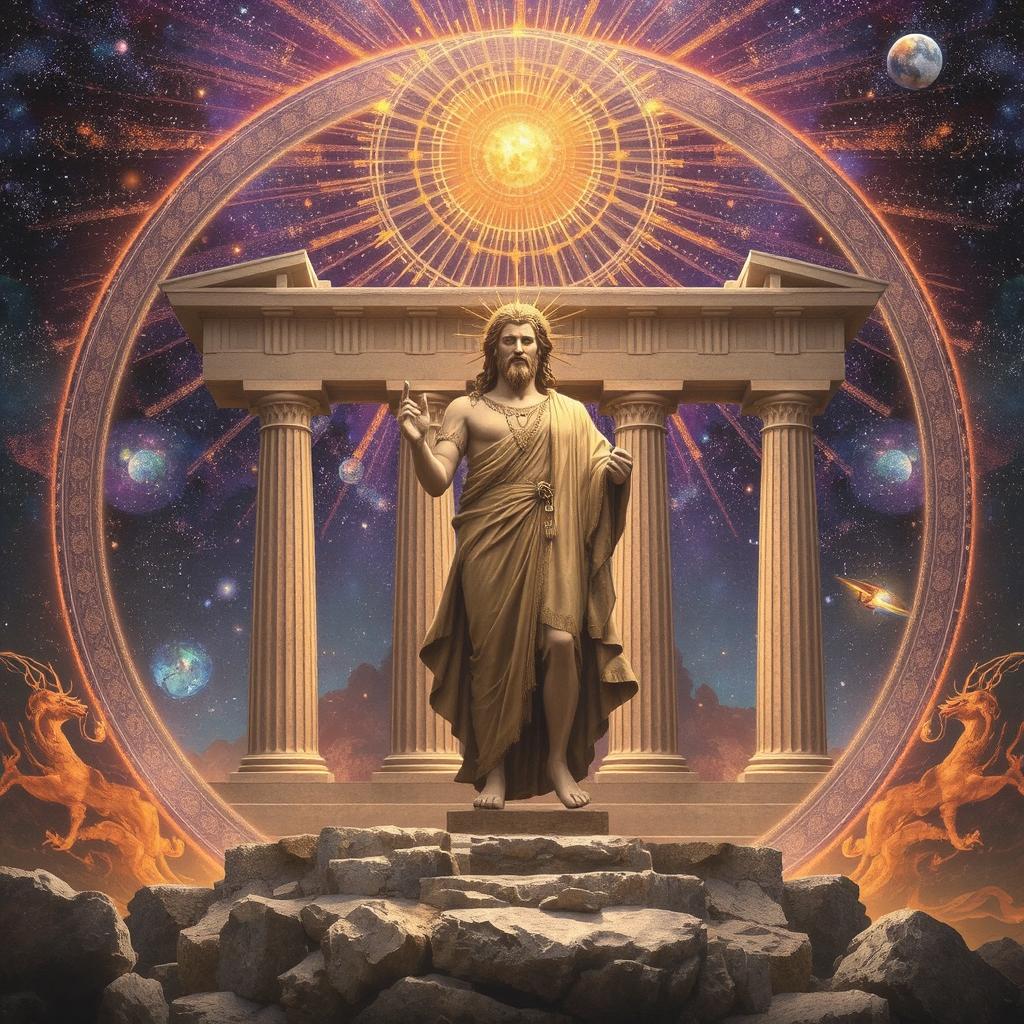Aion: Quantum Time, Cosmic Order, and Life in Eternity

In the fast-paced modern world, where the future seems just as fleeting as the present, concepts like mindfulness, the power of now, and quantum mechanics offer us tools to make sense of our existence. Yet, what if these ideas we consider revolutionary were actually echoes of something far older? The ancient Greek concept of Aion provides a striking lens through which to view timelessness, cosmic order, and the eternal present, linking contemporary spirituality with ancient wisdom.
What is Aion?
In Greek philosophy, Aion (αἰών) represents time in its eternal, indivisible form. Unlike Kronos, which is time measured by clocks and calendars, Aion is the timeless continuum, the cosmic essence of existence where past, present, and future exist as one. Aion is not bound by the ticking of seconds; it’s the breath of eternity, encompassing all moments in a single, undivided reality.
The Greeks understood Aion as a force beyond human experience, often personified as a deity embodying eternal youth and renewal. This contrasts with Kronos, frequently depicted as the old man wielding a scythe, marking the inevitable passage of linear time.
Aion and the Quantum view of time
Modern physics, particularly quantum mechanics, offers insights that feel surprisingly aligned with Aion. In the quantum realm, time does not behave as we experience it. Particles exist in a state of superposition, where multiple possibilities coexist until observation collapses them into one reality. This mirrors the timeless quality of Aion, where all states of being are present simultaneously.
The block universe theory, a concept from relativity, also suggests that time is not a flowing river but a solid block. Past, present, and future all coexist, much like the eternal now of Aion. In this view, the progression of time is an illusion created by our perception—a notion that resonates deeply with ancient Greek metaphysics.
Aion and the Eternal Present
Nietzsche’s concept of the eternal recurrence challenges us to live as if every moment will recur infinitely, emphasizing the idea of complete presence. Similarly, Eckhart Tolle’s “Power of Now” invites us to dwell fully in the present moment, the only true reality. These ideas find their roots in the timeless essence of Aion, where existence is experienced in its entirety, unfragmented by the ticking of Kronos.
Mindfulness practices, which encourage us to focus on the here and now, echo the invitation of Aion to transcend linear time. When we meditate or become deeply present, we touch something eternal, something beyond the constraints of the everyday. In those moments, we live in Aion, not Kronos.
Reality Creation and the Multiverse
The New Age concept of reality creation—the idea that our thoughts and beliefs shape our reality—also intersects with the timeless dimension of Aion. If time is eternal and all possibilities exist simultaneously, then choosing a particular thought or belief could be akin to collapsing a quantum wave function, aligning your reality with a specific outcome.
The multiverse theory further enriches this discussion. If all possible versions of reality exist in parallel, then Aion could represent the cosmic canvas upon which these realities unfold. Ancient Greeks might not have articulated multiverses in modern terms, but their mythological and philosophical frameworks—with ideas of eternal cycles and cosmic order—hint at a similar awareness of infinite possibilities.
Aion and Cosmic Order
Aion is deeply tied to the concept of cosmic harmony. For the Greeks, the universe was not chaotic but governed by an intrinsic order (logos). To live in alignment with Aion is to harmonize with this cosmic rhythm, to embrace one’s place in the eternal dance of existence.
In this sense, Aion is not just about time but about meaning and connection. It reminds us that we are part of something far greater than ourselves. By living in awareness of this eternal dimension, we can experience a profound sense of unity with the universe.
Why Aion matters today
Despite its ancient origins, Aion offers a transformative perspective for modern spiritual seekers. It bridges the gap between ancient philosophy and contemporary science, weaving together insights from quantum physics, mindfulness, and metaphysics. It challenges us to see time not as a linear chain dragging us forward but as an eternal presence we can access and embrace.
Understanding Aion also deepens our appreciation of practices like meditation, which cultivate a connection to the eternal now. It reminds us that by stepping out of the relentless flow of Kronos, we can find stillness and timelessness in the heart of the present moment.
Rediscovering ancient wisdom
In a world increasingly fascinated by quantum mechanics, the multiverse, and reality creation, the concept of Aion invites us to rediscover the spiritual depth of ancient philosophy. It challenges us to recognize that the ideas we consider cutting-edge were often well-known to the thinkers of the past.
Aion is not merely a relic of Greek thought but a timeless principle that continues to shape our understanding of the universe and our place within it. By exploring this forgotten concept, we can bridge the gap between past and present, science and spirituality, and discover a richer, more profound way of being.


